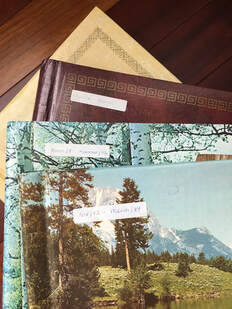
They were thrilled with them, and so was I. Instead of having about a dozen of those old, heavy, thick photo albums, with yellowing pages, we now had sleek photo books that in total occupy only about eight centimetres on our shelves. When I finally finished those books and breathed a sigh of accomplishment, Jim asked if I was going to do the other years too.
Let’s just say my response was not favourable. And yet, for the past many years, this project has been hanging on a hook in my brain, occupying space that I could easily have used for other things. This week, knowing we are choosing to be in self-isolation, and knowing I find having a schedule to be comforting, I put this project on my list along with several others like quilting, knitting, cribbage, walks, ukulele, meditating and using up what we have in the pantry.
When we moved to this house five years ago, all those extra albums, the pre 1985 ones, and the post 2005 ones, were boxed up and moved with us. They have remained in those boxes on shelves since then. On the weekend I went to the basement and hauled them out so I could at least see what I was facing. It was overwhelming. And yet I knew, the journey of a thousand photos….
What started as a daunting project soon became one I looked forward to spending time with each day. As I’d open each album, peel back the clear, sticky cellophane, thought to be a wonder product in its day, and gently pry each individual photo off the page, before measuring, scanning and saving it, I found myself engrossed in the story of our life as told in the pages of these books.
What has simply astounded me, is how many details of our story I have forgotten. Or at least have not bothered to include in the story in my mind. I can only assume I took pictures of places and people and events that were important to me. And yet, these are not all remembered with the same amount of clarity.
This idea of what becomes the story, after the details of it have had some years to filter into their spots in history, has struck a chord with me this week. The Covid-19 story is being written as we go. None of us knows the ending. Today, the pictures that are being taken are many. I am so grateful these will all be of the digital kind and will never have to be pried from old albums. We have pictures of hospital corridors in Italy, lined with patients; some lying on the floor. We see the military patrolling the streets of Spain. We see the empty streets in a normally over-crowded India. We see young adults frolicking carelessly on beaches in Florida. We see friends posts of clean cupboards, and of piles of things waiting to be donated.
These things are, of course, all important parts of the story. Certainly, we should have pictures of these in our albums commemorating these times.
But there are other photos that are being taken too. There are photos of friends ‘visiting’ over Zoom chats. There are pictures of groceries being dropped off on doorsteps. There are shots of people singing on balconies, and of others cheering on the front-line workers from their front doors. There are pictures of small children taking neighbourhood walks to wave to their friends through windows. There are even rumours of politicians of opposing views, coming together to work for the good of the city, province and country. There are professional athletes choosing to cover the wages of stadium workers.
These too, are important parts of the story and these pictures too will go into our albums. The question will be, if, like with my albums, the brain only remembers a story in a certain way, which way will each of us remember this time?
Research tells us that the strongest memories are formed when they are linked to strong feelings. This is why we easily remember things like the birth of our children, events where we really connected with others, events that frightened us or ones that made us come alive. I suspect that whatever feelings we have in these weeks and months we are navigating, will be the ones that help us form our memories. I’m going to try to create feelings over these weeks that will foster the kinds of memories I want to have. I’m not afraid of losing my memory about how bad or frightening or lonely a time this is. I will certainly remember how hard it is to not see our children and little Ben. It is important for me to remember these things. And yet, there are other things I want to remember too.
I want to remember how nice it has been to go out into the country for a walk with Jim each day. Just being in our old neck of the woods has been very comforting to me. Not needing to rush home for anything is a rare treat. I want to remember how I rushed out to the door of the garage today to film the garbage truck picking up our recycling. Garbage trucks are Ben’s absolute favourite thing, so I can send him this little video as a way to connect. I want to remember how nice it was to see my book club friends on a group chat, and my dancing friends on a separate one and that in both groups, being able to talk about our fears and thoughts brings us closer. I want to remember what fine people our children are; how they are making the best possible choices to both care for their own families and to do everything possible to see to it that we are safe too.
I want to remember what it is like to miss doing the things I love, so that when the restrictions are lifted, and the axis of the world rights itself, I will never again dismiss simple pleasures or be so entitled as to think I can assume the things and people I love today will still be available to me tomorrow.
For now, I’m going to keep on scanning 1983. I’ll also keep creating new pictures for the book of 2020. I’m going to assume it will have a most miraculous ending.
My inquiry for you this week is, ‘What memories am I creating?’
Elizabeth is a certified professional Leadership Coach, and the owner of Critchley Coaching. She is the founder and president of the Canadian charity, RDL Building Hope Society. She works with corporations, non-profits and the public sector, providing leadership coaching. She creates and facilitates custom workshops for all sizes of groups. She has particular expertise in facilitating Strategic Plans for organizations. Contact Elizabeth to develop skills needed for navigating uncharted waters.
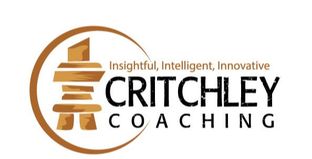
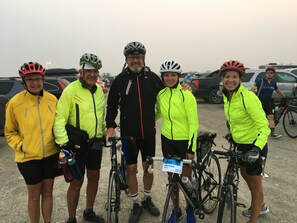
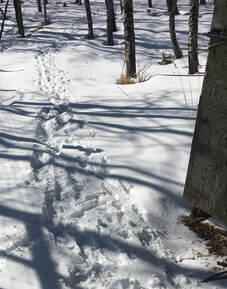
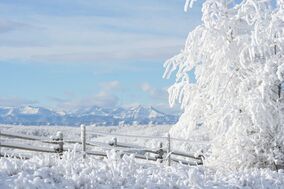
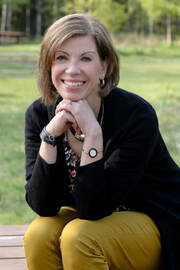
 RSS Feed
RSS Feed